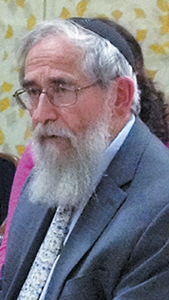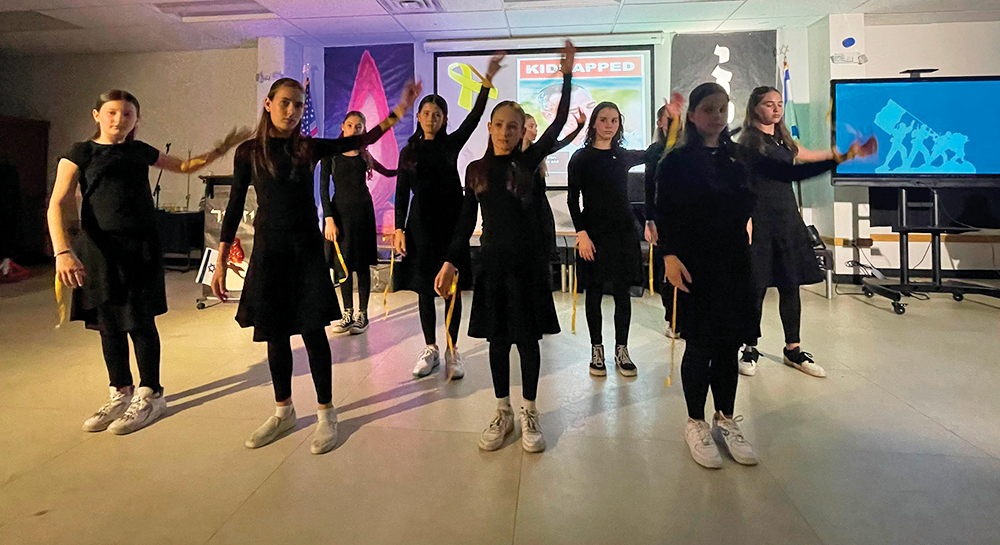
On November 18, students and young adults gathered in the Stern College Beit Midrash to hear Rabbi Saul Berman contemporize his 1973 article on the status of women in halachic Judaism. Since 1971, he has served as an associate professor at Stern College for Women where he teaches Jewish Law related to medical ethics, contemporary social and political issues, the status of women, and liturgy. He was the rabbi at Lincoln Square Synagogue in Manhattan from 1984 to 1990. Since 1990, he has also served as an adjunct professor at Columbia University School of Law, teaching a seminar in Jewish Law.
Berman started off by reciting psalms for the deaths and injuries that occurred earlier that morning in Jerusalem. He then took questions from the audience about his article, which delivered a current sweeping opinion on the importance of women in Jewish life and their ritual participation and study. At the time, it was seen as a defining commentary on their status in the community, and covered topics such as women engaging in Talmud study and observance of time-bound positive commandments.
Questions included: “What are your assumptions going in about how halacha relates to the individual?,” “Why are we still having this conversation and what do we have to do so we won’t have it in 40 years?” and “Do you think there has been a change in satisfaction in women’s religious observance since you wrote this article?”
Serving as Jewish Studies department chair at Stern in 1971, Berman said that by the end of his second year he thought he had an approach to kol isha “worth writing about.” He submitted it to Tradition and the then-editor called him and said, “In our 20 years of Tradition we’ve never had anything on women. I can’t have this be our first ‘women article.’” Berman was then asked to write a more wide-ranging piece.
“It generated an enormous amount of discussion and I was very pleased,” said Berman. “Writing about women in halacha is writing about the totality of halacha. This isn’t just the halacha of 50% of the population,” he added.
Berman asked the crowd about the number of commandments women are not obligated to fulfill. A student chimed, “Does it really matter?” Berman responded, “Not only does it matter, but which commandments they are matter, too.”
Berman spoke about the many people who thought his father was crazy for building a sukkah big enough for his mother and sister to sit in. “You built a sukkah around the number of men; women didn’t eat in the sukkah, they didn’t count omer or shake the lulav. They certainly didn’t learn Torah with any degree of regularity,” he noted.
Berman explained, “People have this concept that every law is either an obligation or a prohibition. The reality is that halacha isn’t black and white like that. The realm of reshut (discretion) is a fundamental area of halacha… This is the fundamental realm for personal decision making,” he added.
Berman commented on advances that have been made since his article, “If you look at mitzvot asei where women are exempt, within the past 40 years, seven out of 14 of the commandments have been integrated into observant women’s regimens.”
One of the commandments over which there is vigorous debate is Torah study, specifically the Jewish oral law. “One of the most frequent consumers of Yoetzot Halacha are women in the Chassidishe community. The husbands know, the rabbis know, nobody objects because they are getting answers. Why? Yoetzot Halacha have worked through these laws more extensively than any man going into smicha or Rabbanut,” he said.
Students, all women, expressed frustration over ritual fringes and phylacteries not being accepted in the Orthodox community. One student noted, “Those mitzvot are obligated most of the time. That means women feel excluded most of the time.” Another student added, “If you’re not obligated, then the community examines your motivations and says it’s less valuable [to perform the commandment].”
One student continued, “I don’t want mitzvot to feel like a battle. I want to engage in my tradition. Why is this a fight?”
Berman responded, “The line between halachic change and communal change is never simple. The rate of change in traditional communities is slow. If we ultimately believe that Torah is the best way to lead our lives we have to struggle to form communal practices based on halacha.”
Berman also gave some history of women’s Torah learning at Stern College. “When we opened up the Beit Midrash at Stern in 1976 for women, Rav Soloveitchik spoke about the importance of the oral law and importance of people studying it regardless of gender. He said if anyone says to you, ‘But you’re a woman, what are you doing learning? Do not answer him. Tell him to talk to me. Don’t get into a battle, just do it.’ It is a battle and it’s being won by the righteous side,” he added.
Berman also addressed the modern day agunah problem. He said, “At this moment in time there is no justification for the existence of the agunah problem. Whether we like the solution or not, the halachic prenuptial agreement must be executed, preferably in the mutual form. Like I say in class, ‘Parents who let their children get married without the prenup [are engaging in] a form of child abuse and the community should condemn it as such.’ You don’t marry someone who refuses to sign the prenup, it’s as simple as that.”
The status of women as halachic decisors was then discussed. “Besides objection, there is no halachic objection,” he noted. “There already are positions of female leadership. Doesn’t matter what it’s called, Rabbanut in Israel, Maharat in America, women are occupying positions of spiritual leadership. The community will adapt to it. It will happen slowly, that’s the nature of change in our community. The more positions women occupy in leadership, the more stable these roles will become. [The more] women do mitzvot they aren’t obligated to do, the more these directives will be established,” he added.
On the issue of women occupying public leadership roles in the community, Berman said, “If there are rabbis uncomfortable with women being presidents of synagogues, I suggest that they not be uncomfortable. What is the point in being uncomfortable if halacha doesn’t necessitate that?” he advised.
What can the community do to keep moving forward? “Firstly, if you don’t use a right you’ll lose it. A message of halacha to all of you. Many rights women had were lost because women didn’t exercise them. Rabbis rationalized by stating women shouldn’t be doing it and then created models for them not to do it. Define your rights and duties and insist in your right to perform those duties. Secondly, women must insist on demanding Torah at the highest possible level and not tolerate mediocrity in the teaching of women. Or else that’s what you’ll get–more and more of it. You must demand excellence in the teaching of Torah, it doesn’t matter which area,” he advised. “You must make your presence known in tefillah. If women want to feel counted, they must show up. When women come with regularity, the community will say we are not a whole community without women” he added.
Berman ended on a hopeful note. “Don’t get discouraged. What you are contributing will change the attitudes of your daughters and for every generation in the future.”
By Rivka Hia













